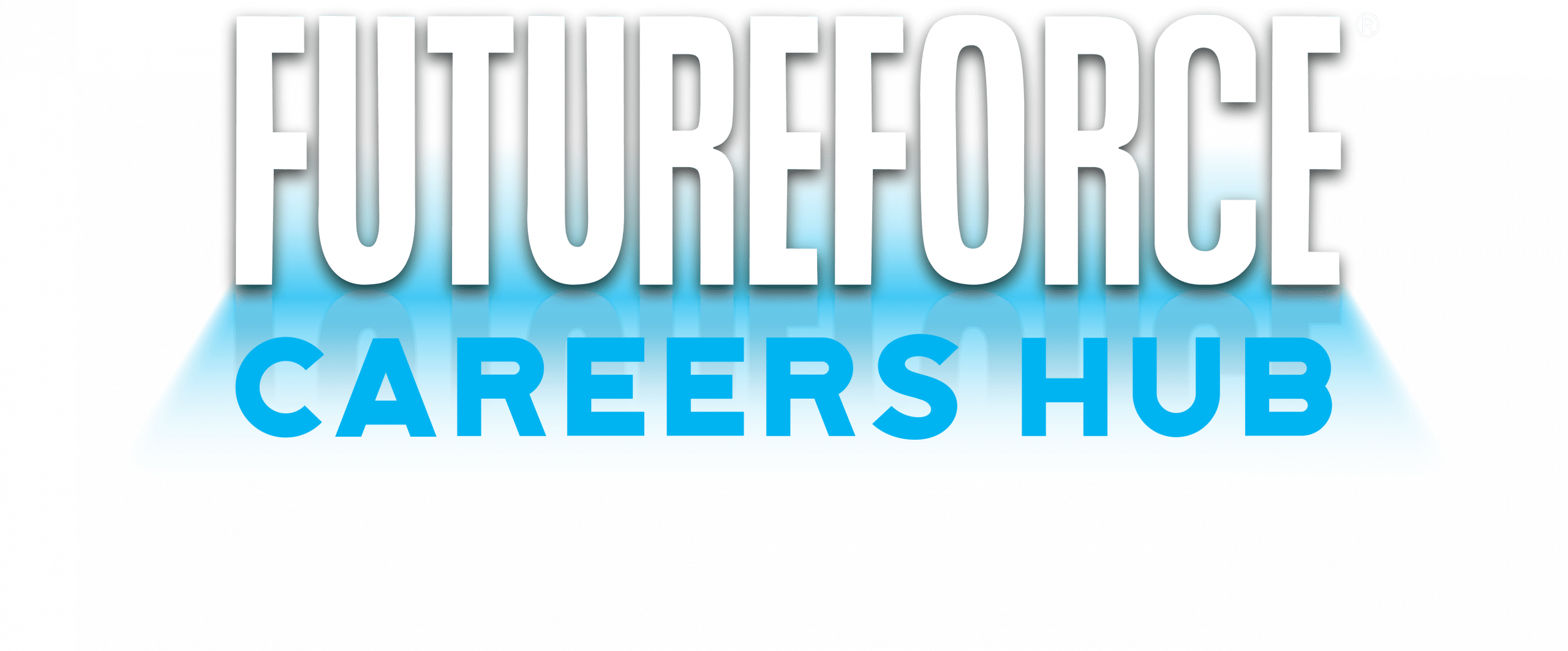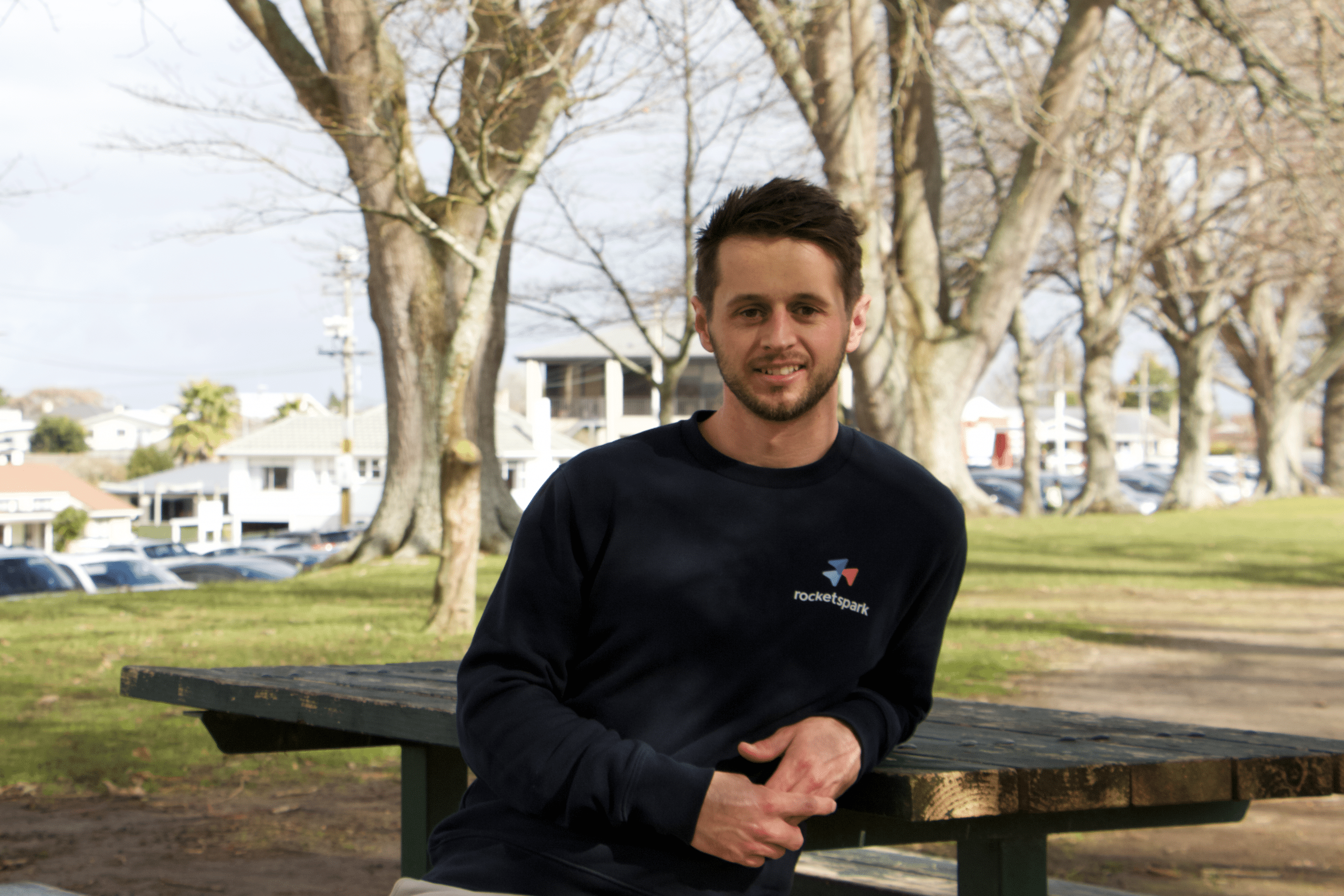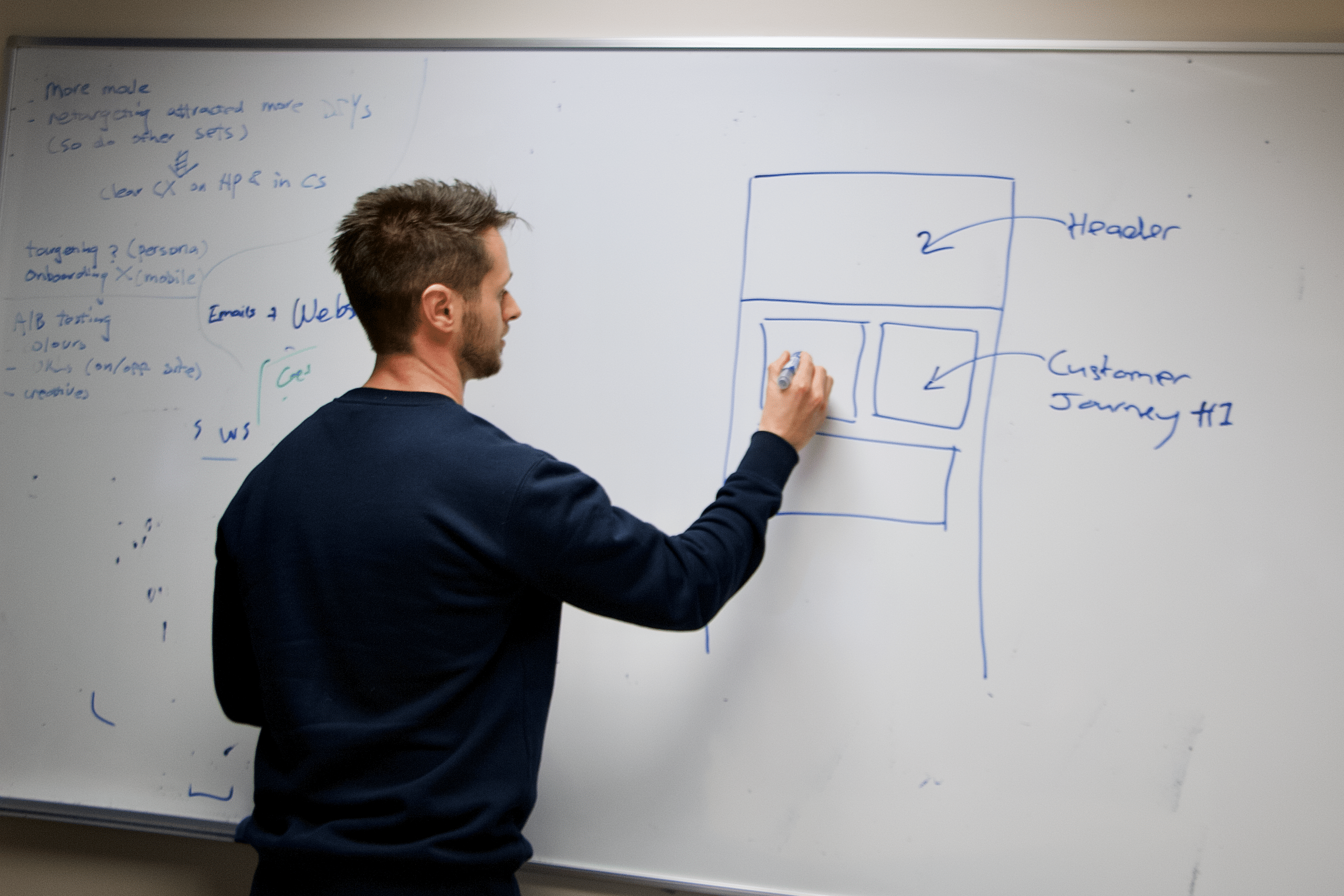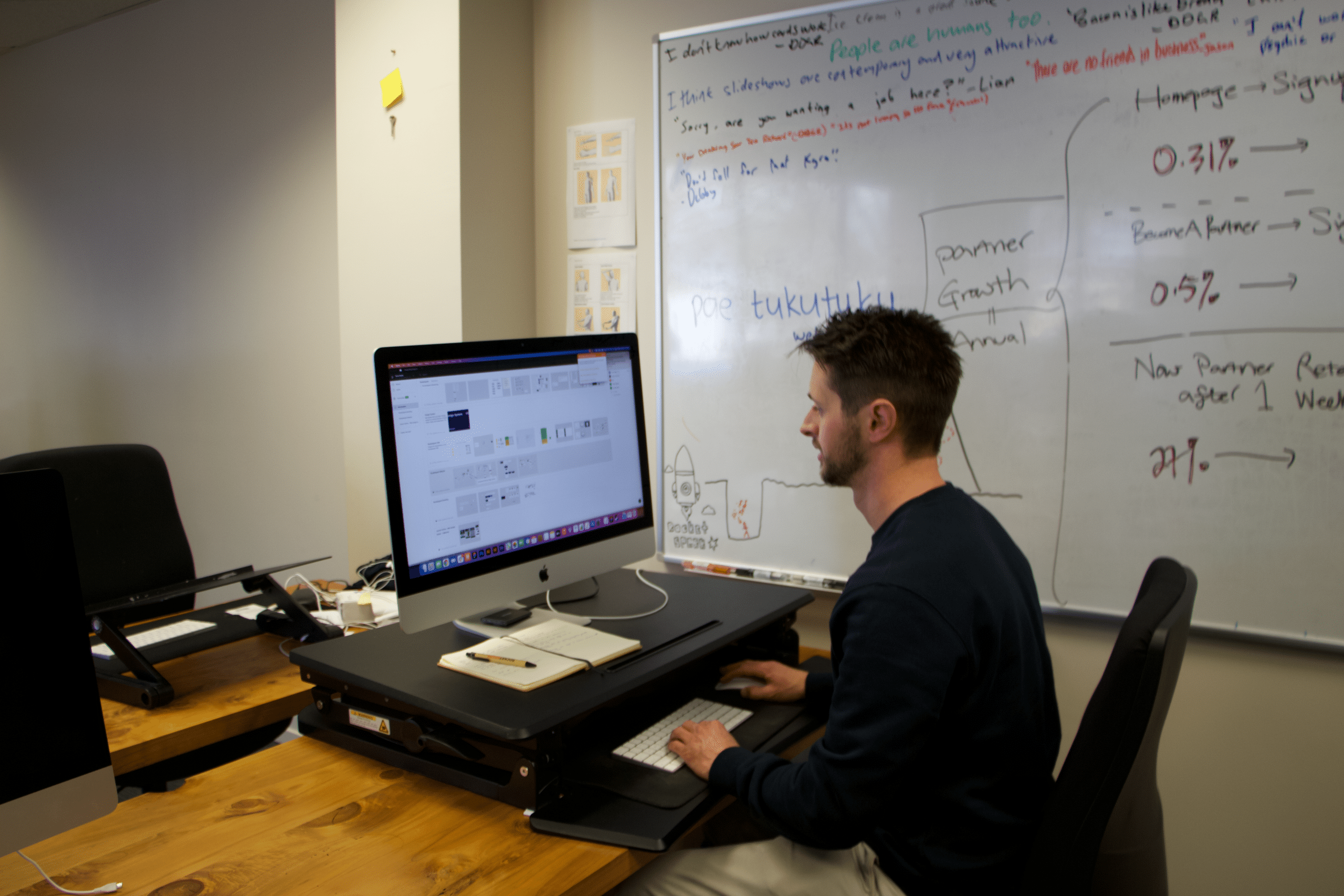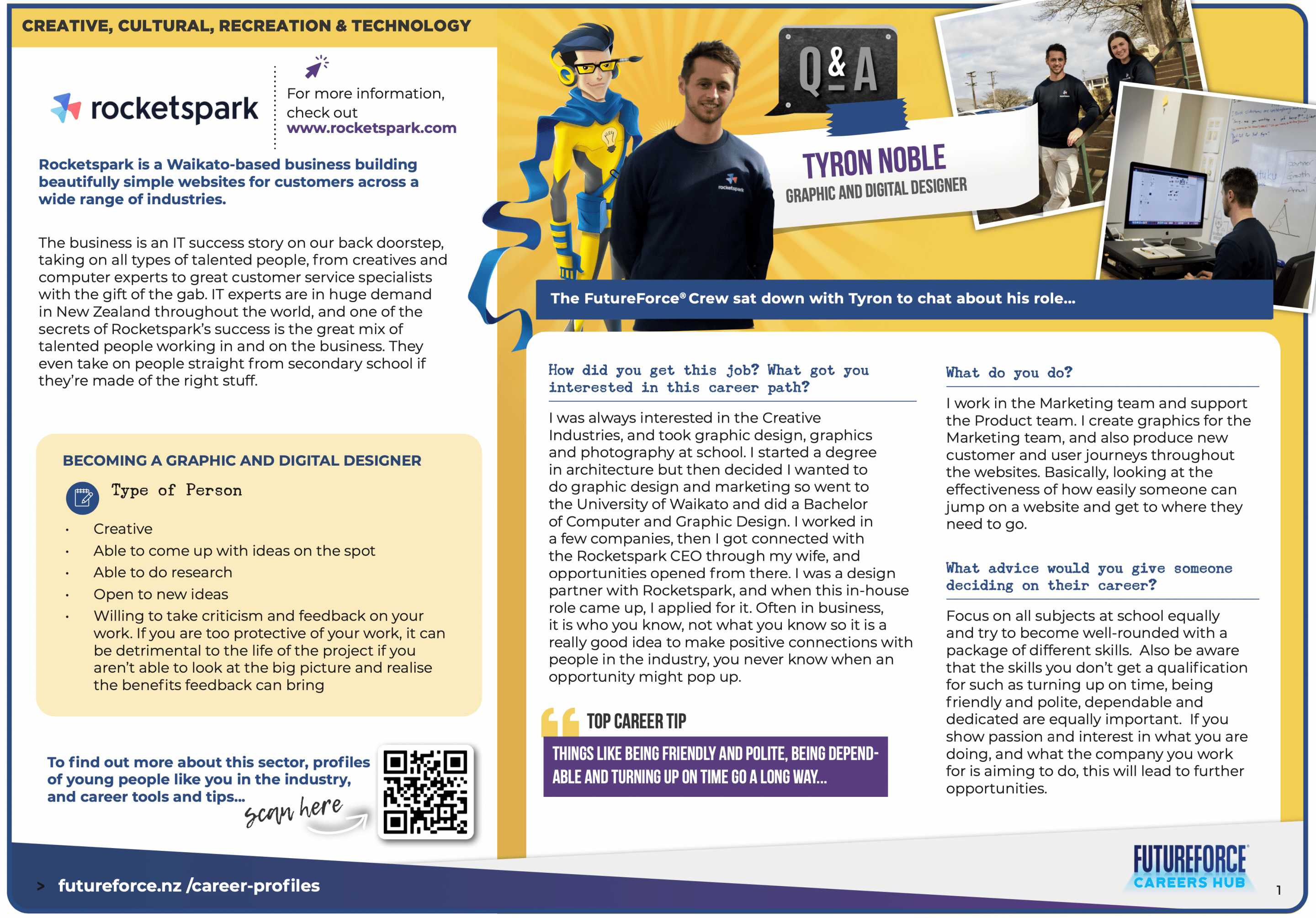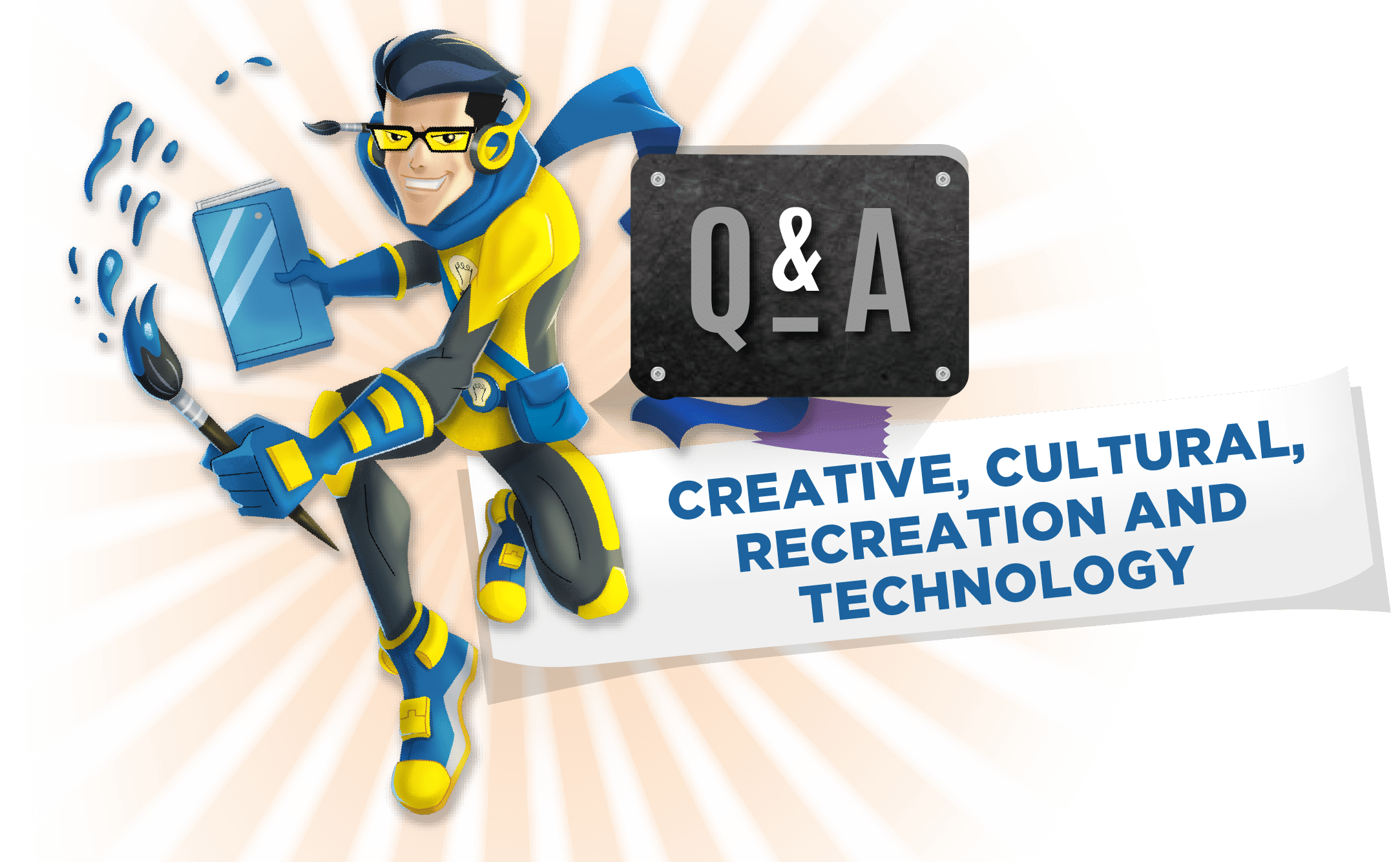

Rocketspark is a Waikato-based business building beautifully simple websites for customers across a wide range of industries.
The business is an IT success story on our back doorstep, taking on all types of talented people, from creatives and computer experts to great customer service specialists with the gift of the gab.
IT experts are in huge demand in New Zealand throughout the world, and one of the secrets of Rocketspark’s success is the great mix of talented people working in and on the business. They even take on people straight from secondary school if they’re made of the right stuff.
With HQ in Cambridge and with a few team members working remotely in New Zealand and offshore, the Rocketspark team is passionate about making websites fun as well as inspiring customers with clever ecommerce solutions in a fast-changing world.
At the core of every great website is excellent design. Rocketspark Graphic and Digital Designer Tyron Noble caught up with the FutureForce® team to talk about his career.
Tyron Noble
Graphic and Digital Designer
Top Career Tip
“Remember, the skills you don’t get a qualification for are often just as important as a qualification. Things like being friendly and polite, being dependable and turning up on time go a long way”
A Chat with Tyron about his role
Tyron Noble
Graphic and Digital Designer
Former Cambridge High School Student
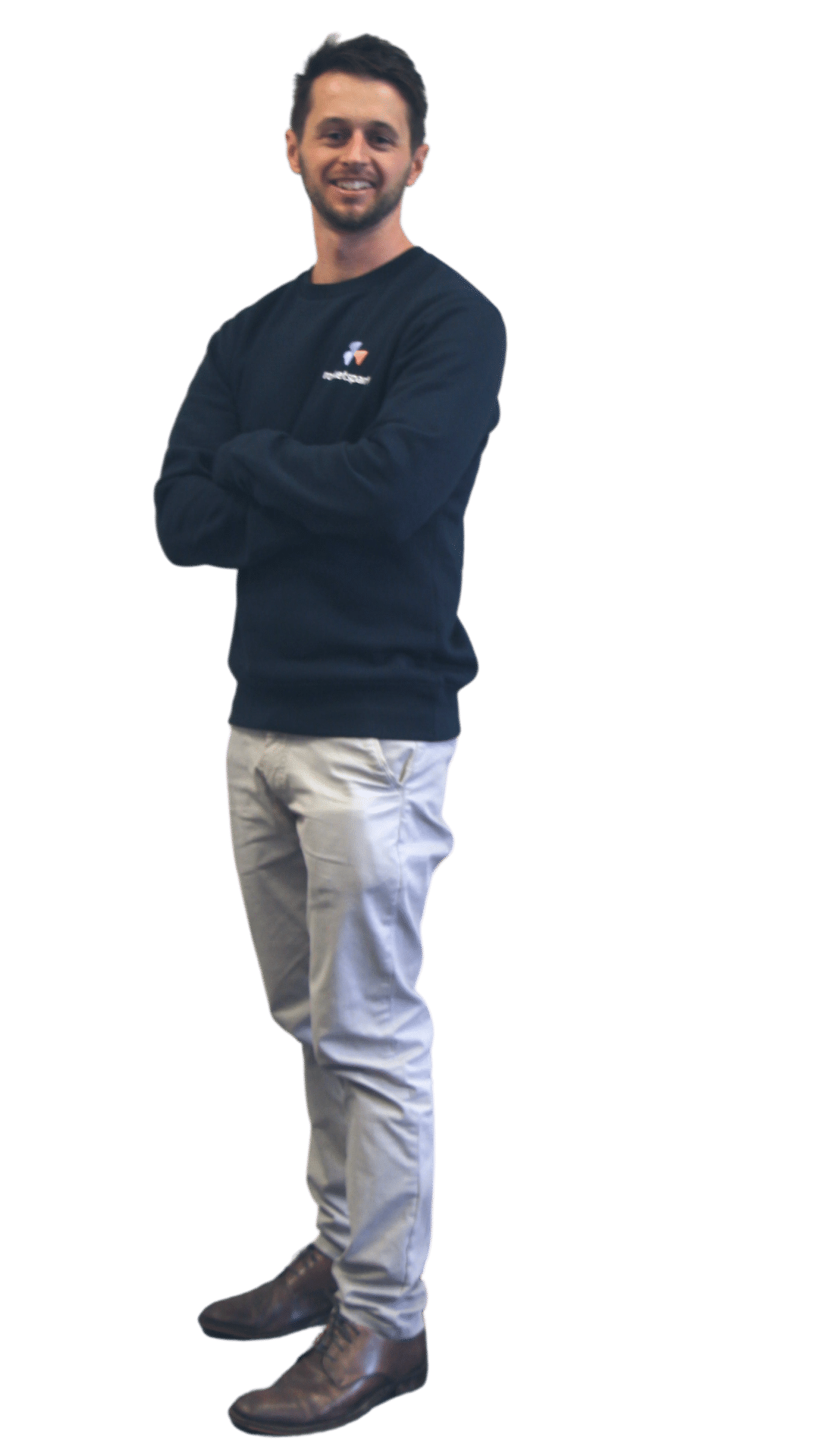
How did you get this job? What got you interested in this career path?
I was always interested in the Creative Industries, and took graphic design, graphics and photography at school. I started a degree in architecture but then decided I wanted to do graphic design and marketing so went to the University of Waikato and did a Bachelor of Computer and Graphic Design. I worked in a few companies, then I got connected with the Rocketspark CEO through my wife, and opportunities opened from there. I was a design partner with Rocketspark, and when this in-house role came up, I applied for it. Often in business, it is who you know, not what you know so it is a really good idea to make positive connections with people in industry, you never know when an opportunity might pop up.
What do you do?
I work in the Marketing team and support the Product team. I create graphics for the Marketing team, and also produce new customer and user journeys throughout the websites. Basically, looking at the effectiveness of how easily someone can jump on a website and get to where they need to go.
What have you learnt on the job?
When I left university, I was equipped with the skills to complete academic projects, but I have had to do a lot of real-world learning. I didn’t know anything about business and how a particular business might work internally. Every business does the same thing differently – they might have the same end goal but go about it in a different way. I have learnt the importance of people skills, to be confident talking to range of people including managers and CEOs, and that everyone’s opinion has value no matter what their role in the business is.
What do you wish you knew when you left school?
I wish I knew more about the importance of human connections and about how businesses operate.
What advice would you give someone deciding on their career?
Focus on all subjects at school equally and try to become well-rounded with a package of different skills. Also be aware that the skills you don’t get a qualification for such as turning up on time, being friendly and polite, dependable and dedicated are equally important. If you show passion and interest in what you are doing, and what the company you work for is aiming to do, this will lead to further opportunities.
What advice would you give someone looking at this type of work?
Do some research, talk to people who have first-hand experience in the study you are thinking of doing and who are working in the jobs you are interested in. They might be able to give you a clear pathway and a direction to head depending on what outcome you are looking for.
What does someone need to know when starting out at work?
Get a good understanding of the business you are stepping into. Ask questions in an interview such as what does the company do, what are its goals, what do they want to achieve? Also make sure you have a clear understanding of your job description. What will you actually be doing, will it suit you, are there opportunities to develop?
What do you like most about working at Rocketspark?
Firstly, I like that it is a New Zealand software company, helping New Zealand people. I like that it is based in Cambridge, the town I live in, so I don’t have to spend time commuting and travelling to work. Rocketspark offers great career development opportunities. If you’re willing to upskill and move forward in your career, they will help you achieve your goals. I like the people and culture, the team environment. Everyone is dedicated to the success of Rocketspark, and it is great to work with people who are giving their best to achieve this common goal.
What advice do you have for keeping balanced/ managing stress?
Have a focus outside of work, a hobby away from the work environment. I work five days a week in an office, so I enjoy getting outdoors as I think it is refreshing and healthy to get that contrast. It is important to have a healthy, balanced diet but I think the most important thing is to get enough sleep during the week. If you are sleep-deprived, it is so much harder to cope with the challenges that arise in your work.
Where would you like to go with your career?
My ultimate aim is to lead a creative team, to be the overarching umbrella of a team. I would like to take on more responsibilities and help navigate the pathway of a creative team. I would like to teach and pass on the skills that I have learnt to help younger people develop their skills.
On the job
What does a typical day look like?
My day will usually start with a meeting, which could be
- A general catch up seeing how everyone is feeling and how things are going
- A whole staff meeting so we get an understanding of what every person is working on, how their workload is and who might need support or be available to help others
- A creative team meeting where we present new concepts and designs, critique them, give feedback and make any changes
Then I will get stuck into the nuts and bolts of designing – in a typical week I would say that my job is 60% designing, 20% meetings and 20% general administration tasks.
Becoming a Graphic and Digital Designer
Skills, subjects and qualifications
What sort of person do you need to be for this type of work?
You need to be:
-
- Creative
- Able to come up with ideas on the spot
- Able to do research
- Open to new ideas
- Willing to take criticism and feedback on your work. If you are too protective of your work, it can be detrimental to the life of the project if you aren’t able to look at the big picture and realise the benefits feedback can bring

“Place importance on those skills you don’t need a qualification for, these basic skills go a long way. Show that you are willing and eager to keep learning and growing as a person.”
For more information visit
> Rocketspark
Useful school subjects + other quals? Did you study/are you studying?
“I studied a Bachelor of Computer and Graphic Design at the University of Waikato. At school I feel I was a bit naïve, I only really focussed on the creative subjects but after being in the world of work I think it is important to focus on all your subjects the same amount. They all come in handy later in your work life and help you to become well rounded in everything. It is okay to have a passion, but don’t neglect the other subjects, they are all important.”
